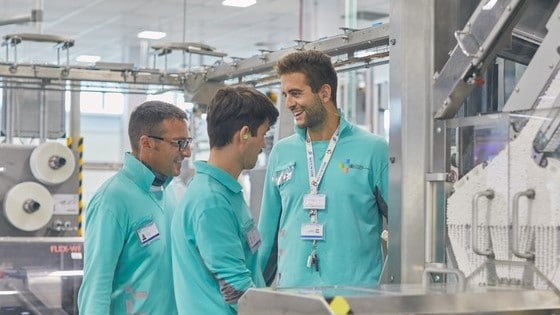Mark the date: The death of the planet begins in earnest around 2040. Food shortages. Wildfires. Droughts. Flooding. A mass die-off of coral reefs. A United Nations’ scientific panel on climate change recently predicted all this is ahead for us – unless the world economy is massively transformed with an urgency that has “no documented historic precedent.”
How to prevent it? The large remedies are obvious. Tax carbon dioxide emissions. Stop burning coal. Adopt
sustainable energy sources. In the United States, raise, not lower, fuel efficiency standards for cars – and, while we’re at it, raise gas prices at the pump and use the increased taxes for infrastructure repair.
None of that will happen on a scale that matters if the United States and China don’t commit. Right now, that doesn’t seem likely. And so, with each passing day, we move closer to oblivion.
But I don’t believe that life
on earth will end in my daughter’s lifetime.
I believe the planet will be saved by men and women who have been trained to look hard at the facts and make executive decisions – business executives.
And I believe they’ll
do that by investing in projects that represent a cost.
This will require a fresh definition of corporate citizenship, community service, and philanthropy. For some, this will be challenging, even painful. As a business pundit has written,
as soon as someone says, “Let’s think outside the box,” you know that can’t happen. So let me offer some suggestions.
If I were a CEO, I’d start by literally leaving the box; I’d step outside and see
where my employees live. The river and the lake and the stream behind the factory – is that water clean? The air quality – how breathable is it? The public schools – are there up-to-date textbooks, supplies that teachers don’t
have to buy, art and music classes? The local parks and playgrounds – are they clean and safe?
These were once the concerns of local government. But budgets are stretched. Regulations have either been gutted or are lightly enforced.
Families with money have abandoned public schools. And it’s been like this for so long that many of our neighbors are convinced it will always be this way. No wonder they feel defeated and angry.
Of course it would be good if energy companies
embraced solar panels and wind turbines and auto companies prioritized electric cars and the oil companies decided not to drill on land that once belonged to the public. But if the planet can be saved, the saviors will not only be giant enterprises. No
progress is more exciting and uplifting than progress that touches your life every day. That means local progress. Progress that can be seen. Progress that inspires others to step up.
What would happen if a company decided to open a new facility – and searched for a city that needed help? And what if, say, it decided it would bring thousands of new jobs to, say, Detroit, where the unemployment rate is 9.30 percent? In a matter of a few decades, that city could be a showcase.
Consider
Patagonia, an outdoor clothing company. It’s not large: 1,000 employees, annual sales around USD 210 million. It gives 1 percent of its sales or 10 percent of its profits, whichever is greater, to environmental groups. This year it’s making
a second gift. “Based on last year’s irresponsible tax cut, Patagonia will owe less in taxes this year – USD 10 million less, in fact,” says CEO Rose Marcario. “Instead of putting the money back into our business, we’re
responding by putting USD 10 million back into the planet. Our home planet needs it more than we do.” A stirring gesture. Who’s next?
Oh, right here. Over the last decade, Philip Morris International has invested more than
USD 4.5 billion in developing and assessing smoke free products. This is not about line extension, or diversification, or any of the usual reasons for rolling out a new product. The goal is the end of smoking. Literally – PMI says that the best
choice for smokers is to stop smoking but recognizes that there are many who will not. For those smokers, PMI is developing smoke-free alternatives. As CEO André Calantzopoulos has said, "We knew our science and the seriousness of
our commercial intentions would face enormous scrutiny. Either we deliver, or we will lose any credibility forever." * Again, who’s next?
When Robert Kennedy was running for President in 1968, he gave a speech that addressed economics in
human, even spiritual terms: “Our Gross National Product is over USD 800 billion dollars a year, but that Gross National Product, if we judge the United States of America by that… counts special locks for our doors and the jails for the people
who break them. It counts the destruction of the redwood and the loss of our natural wonder in chaotic sprawl… Yet the gross national product does not allow for the health of our children, the quality of their education or the joy of their
play. It does not include the beauty of our poetry or the strength of our marriages, the intelligence of our public debate or the integrity of our public officials. It measures neither our wit nor our courage, neither our wisdom nor our learning,
neither our compassion nor our devotion to our country, it measures everything in short, except that which makes life worthwhile.”
Half a century later, the problems are pretty much the same, only more acute. The difference is the expertise
and knowledge that’s available to us now. We know how to fix things; we just have to decide that it’s our responsibility to start fixing them. And if we begin to operate on an almost forgotten First Principle – people first! – the seeds we plant just might inspire others to plant more.
Life is choices. In this case, the choice is between short-term profit and long-term loss. Seen that way – through the prism of spiritual accounting – investing in better
outcomes for our neighbors and customers is just good business. So let politicians dither and governments delay. A revolution in consciousness and activism is calling. Let salvation of the planet begin in the C-suite.
Jesse Kornbluth is an
American journalist and author. He was engaged by PMI to write this piece. The views expressed are the author's own and do not necessarily represent the corporate positions of PMI.
*André Calantzopouplos was speaking in his role as CEO at the time. On May 5, 2021, Jacek Olczak succeeded Mr. Calantzopoulos as CEO, and Mr. Calantzopoulos became Executive Chairman of the Board.



